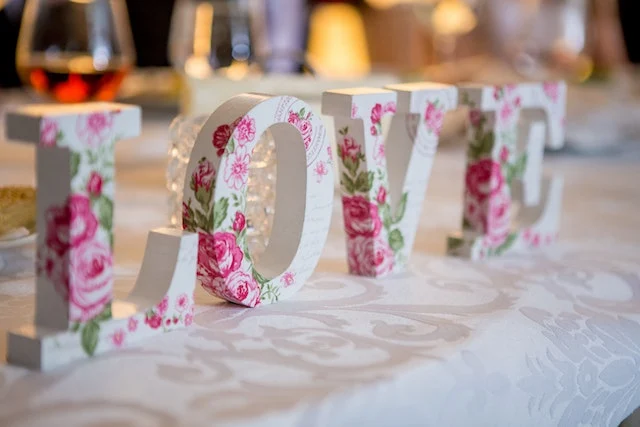Feeling sleepy around someone you love is a natural response to the comfort and emotional security they provide. Their presence calms your nervous system, lowers stress, and induces a sense of relaxation.
When you feel safe and cherished, your body and mind can unwind, leading to a gentle drowsiness in their company.
Here are 10 possible reasons why you might feel sleepy around someone you love:
1. Comfort and relaxation: Being in the presence of someone you love can create a sense of comfort and relaxation, which can make you feel more at ease and eventually lead to drowsiness.
2. Emotional bonding: Strong emotional connections with loved ones can bring about a sense of security and contentment. This emotional bonding can induce feelings of relaxation, making you feel sleepy.
3. Lowered stress levels: Being around someone you love can lower your stress levels. When stress diminishes, it becomes easier to unwind, resulting in drowsiness or sleepiness.
4. Trust and safety: Being in the company of someone you trust and feel safe with can alleviate anxiety and promote a sense of calmness, which can contribute to feeling sleepy.
5. Hormonal changes: Being in love can trigger the release of hormones like oxytocin, which can have a calming effect on the body. These hormonal changes can make you feel more tired or sleepy.
6. Emotional exhaustion: Love and deep emotional connections can be intense and demanding. If you've been experiencing emotional highs and lows due to your relationship, it's possible that you're feeling emotionally drained, leading to increased sleepiness.
7. Increased physical intimacy: Being physically close to someone you love, such as cuddling or hugging, can release endorphins and induce a state of relaxation. This physical contact can create a soothing environment that makes you feel more inclined to sleep.
8. Synchronization of sleep patterns: When you spend a significant amount of time with someone you love, your sleep patterns may start to synchronize. If the other person has a naturally sleep-inducing effect on you, it can influence your own sleepiness.
9. Mental and emotional processing: Love and relationships can be mentally and emotionally demanding. Sometimes, when you're around someone you love, your mind subconsciously takes the opportunity to process and reflect on various thoughts and emotions, which can make you feel tired.
10. Sense of belonging: Being in the presence of someone you love can provide a deep sense of belonging and fulfillment. This feeling of being complete and secure can help you let your guard down, relax, and ultimately feel sleepy.
Note - It's important to note that feeling sleepy around someone you love may vary from person to person. Different individuals may experience different physiological and psychological responses, so these reasons are not universally applicable but provide some insights into common experiences.
Does falling in love ❣️ make you sleepy ?
Yes, falling in love can sometimes make you feel sleepy. When you are in the early stages of falling in love, your brain releases a mix of chemicals and hormones, including dopamine, oxytocin, and serotonin, which can have various effects on your body and emotions.
1. Increased happiness and relaxation: The euphoria and excitement associated with falling in love can induce a state of relaxation and happiness. Feeling content and at ease can make you more inclined to feel sleepy.
2. Emotional and mental exhaustion: Falling in love can be an intense emotional experience. The constant thinking about the person, analyzing interactions, and navigating the complexities of a new relationship can mentally exhaust you, leading to feelings of sleepiness.
3. Hormonal changes: The rush of hormones, such as oxytocin and serotonin, that occurs when you fall in love can have a calming and soothing effect on your body. These hormones can promote relaxation and, in turn, make you feel sleepy.
4. Increased physical activity: When you're falling in love, you may find yourself engaging in more physical activities with the person you love, such as going on long walks, spending time outdoors, or engaging in intimate moments. These activities can increase physical exertion, leading to tiredness and sleepiness.
5. Emotional and psychological processing: Falling in love can be a transformative experience, and your mind may subconsciously process and integrate the new emotions and thoughts associated with this experience. This mental and emotional processing can sometimes make you feel mentally fatigued and, consequently, sleepy.
Note - It's important to note that while some people may experience sleepiness when falling in love, others may not. Individual experiences can vary, and the impact of falling in love on sleepiness levels may differ from person to person.
What are some sign of falling in love 💖
The experience of falling in love can be unique for each individual, but there are some common signs and behaviors that often accompany this stage of a romantic relationship. Here are some signs that indicate you might be falling in love:
1. Increased happiness: You may find yourself feeling happier and more positive overall. The thought of the person you're falling in love with brings a smile to your face and boosts your mood.
2. Thinking about them constantly: When you're falling in love, thoughts of the person occupy your mind throughout the day. You may catch yourself daydreaming about them or replaying moments you've shared together.
3. Emotional intensity: Falling in love can bring about intense emotions. You might feel a deep connection and a sense of emotional vulnerability with the person.
Your emotions can range from excitement and exhilaration to nervousness and longing.
4. Prioritizing their well-being: You genuinely care about the well-being and happiness of the person you're falling in love with.
Their needs and desires become important to you, and you may go out of your way to make them feel loved and supported.
5. Increased empathy: You become more empathetic towards the person and their experiences.
You try to understand their perspective and feelings, and you may find yourself more compassionate and considerate towards them.
6. Butterflies and physical sensations: Falling in love can create a range of physical sensations, such as butterflies in your stomach, a racing heart when you see or think about them, or a general feeling of excitement and anticipation when you're around them.
7. Wanting to spend time together: You have a strong desire to be in the company of the person you're falling in love with.
You enjoy their presence and look forward to spending quality time together, whether it's engaging in shared activities or simply being in each other's company.
8. Support and encouragement: You feel inspired to support and encourage the person in their goals, dreams, and aspirations. You want to see them succeed and be the best version of themselves.
9. Physical attraction: There is a strong physical attraction and chemistry between you and the person you're falling in love with.
You are drawn to their physical appearance, and there may be a heightened desire for physical intimacy.
10. Sense of deep connection: Falling in love often involves a sense of deep connection and understanding.
You feel like you can be yourself around the person, and there is a level of emotional intimacy and trust that develops.
Note -Remember, these signs are not definitive proof of being in love, and everyone experiences love in their own unique way.
It's important to communicate and share your feelings with the person involved to ensure a mutual understanding and a healthy relationship.
What are the three stages of falling in love
The process of falling in love can be generally divided into three stages: the lust/attraction stage, the romantic love stage, and the attachment stage.
These stages are not always experienced in a linear or predictable manner, and the duration and intensity of each stage can vary from person to person. Here's a breakdown of the three stages:
1. Lust/Attraction Stage: This initial stage is characterized by intense physical attraction and desire. It is driven by hormones such as testosterone and estrogen.
During this stage, you may feel a strong attraction to someone based primarily on their physical appearance, voice, scent, or other sensory factors. The focus is on the excitement and anticipation of being with the person rather than deep emotional connection.
2. Romantic Love Stage: In this stage, often referred to as the "honeymoon phase," there is a heightened sense of emotional connection, intimacy, and infatuation.
Neurochemicals like dopamine, oxytocin, and serotonin flood the brain, creating feelings of euphoria, happiness, and obsession. You may experience intense emotions, think about the person constantly, and feel a strong desire for closeness and intimacy.
This stage is often characterized by intense passion, idealization of the partner, and a sense of being "in love."
3. Attachment Stage: As the relationship progresses, it moves into the attachment stage. This stage involves the development of a deep emotional bond, trust, and a sense of security with your partner.
The release of oxytocin, often referred to as the "bonding hormone," plays a significant role in creating feelings of attachment and long-term commitment.
The focus shifts from the initial passion and infatuation to a more stable and enduring love. This stage is characterized by a deep sense of comfort, shared values, and a commitment to supporting each other through the ups and downs of life.
Note - It's important to note that these stages are not strictly sequential and can overlap or repeat. Additionally, not all relationships progress through all three stages, as some relationships may end before reaching the attachment stage.
The experience of falling in love is highly individual and can vary based on personal circumstances and the dynamics of the relationship.
Do we fall in love only once ?
No, falling in love is not limited to just one occurrence in a person's lifetime. People can fall in love multiple times throughout their lives, and each experience of love can be unique.
The idea that we only fall in love once, often referred to as "one true love" or a "soulmate," is a romantic notion but not necessarily reflective of reality.
Love is a complex and multifaceted emotion, and individuals can form deep connections and experience love with different people at different points in their lives. Relationships and circumstances change, and people grow and evolve over time, which can lead to new connections and love interests.
It's important to keep an open mind and heart when it comes to love, as it can present itself unexpectedly and in various forms.
Each love experience can teach valuable lessons, contribute to personal growth, and offer different types of fulfillment and happiness.




